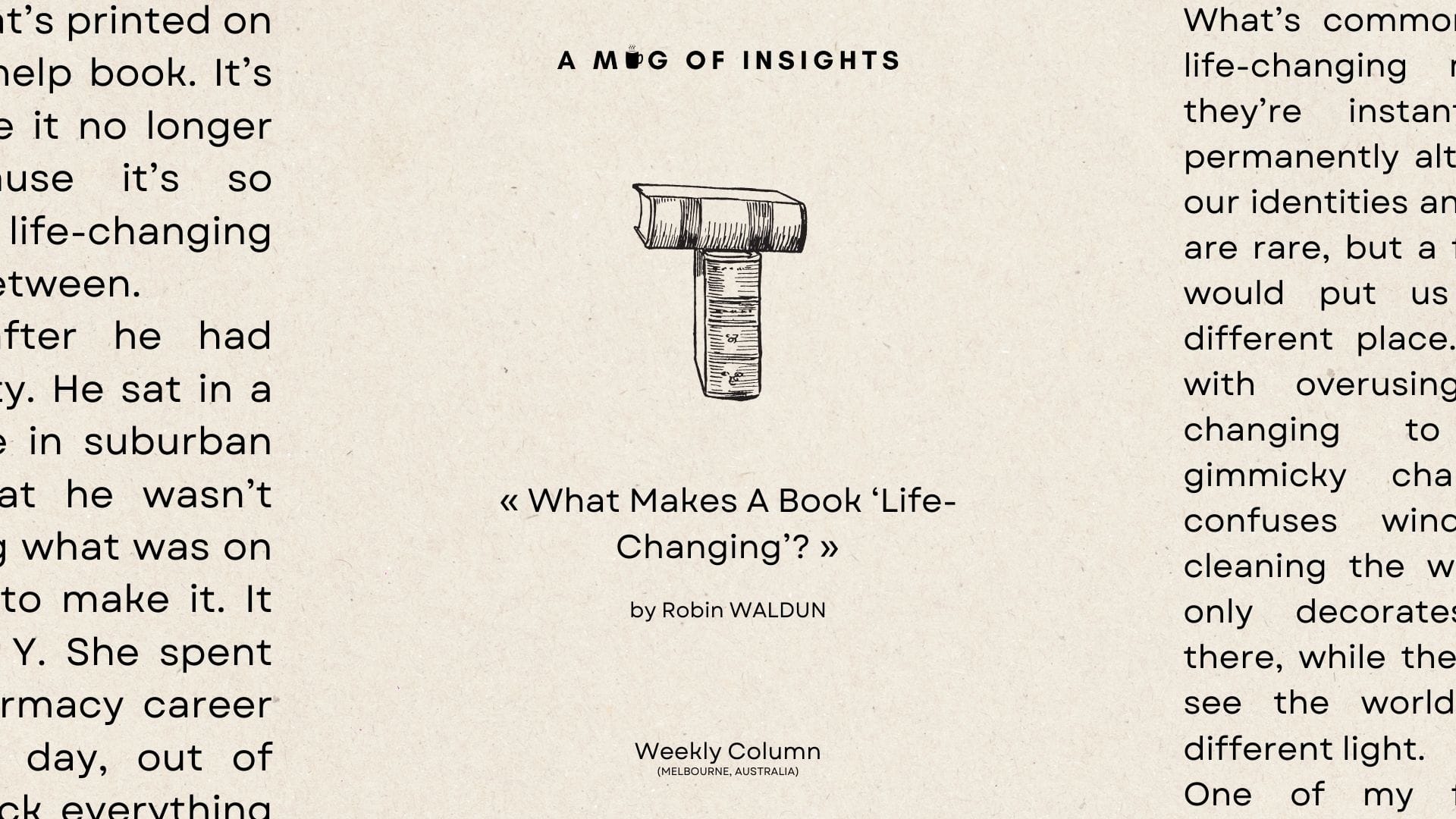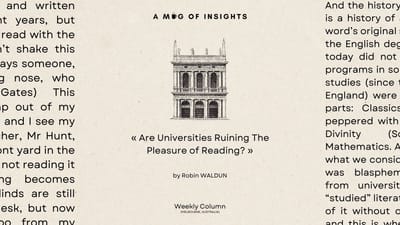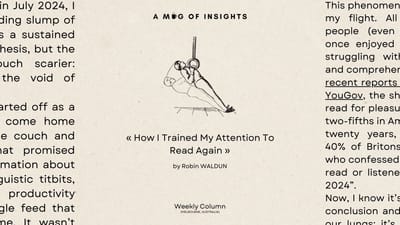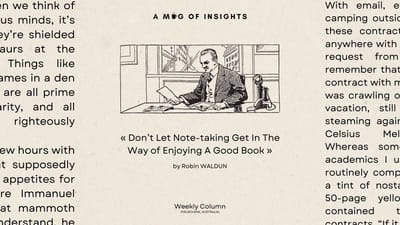What Makes A Book 'Life-Changing'?

Welcome to the weekly column from A Mug of Insights' new home! From now on, I'll dispatch these letters on Saturdays, and paid subscribers will receive their 1-2-Read letters on Mondays. If you like what you're reading, consider upgrading to the Grande tier for journal prompts and a practical exercise every week to strengthen your reading muscles! Thank you for reading, and I look forward to seeing you next week.
“Life-changing!”
Ah! That cursed word that’s printed on the cover of every self-help book. It’s getting to a point where it no longer means anything because it’s so overused. In reality, life-changing events are few and far between.
It hit my friend H. after he had dropped out of university. He sat in a run-down movie theatre in suburban Sydney and figured that he wasn’t happy with just watching what was on the screen but wanted to make it. It then hit another friend, Y. She spent years resenting her pharmacy career in Melbourne, and one day, out of nowhere, decided to pack everything up and move to Japan for 6 months. And it hit me back when I was in high school. A copy of Joyce’s Portrait of an Artist As A Young Man sealed my fate as a writer.
What’s common among all these life-changing moments is that they’re instant decisions that permanently alter our ways of life, our identities and our careers. They are rare, but a few of them a year would put us in a completely different place. And the problem with overusing the word life-changing to describe tiny, gimmicky changes is that it confuses window-dressing with cleaning the window. The former only decorates what’s already there, while the latter allows us to see the world in a completely different light.
One of my favourite thinkers, Byung-Chul Han, described these moments as primordial decisions in how we narrate our lives. All of us carry a life’s narrative that filters what we like, what we want to do and how we treat others. It guides all of our decisions and rules out all other possibilities. This is why no two people can agree on a general philosophy of life, because they carry two distinct, cemented narratives that act as highly selective narrations that ignore everything else.
However, nowadays, social media has made it possible for us to absorb every narrative out there. Joe Schmo woke up at 5 am. I have to do the same! Jane Doe moved to Europe? I have to start packing my bags! But this blind devotion to everyone else’s stories ignores what life has in store for us. It’s their stories, but it’s probably not suitable for our temperaments, experiences and preferences.
A real life-changing experience has to come from two things: sufficient life experience that gets activated by a shift in thinking. For example, I never liked cooking at home because it takes up too much time, the clean-up is messy, and my food is never as good as what they serve at restaurants. But after years of overspending on eating out, accumulating health issues and struggling with fitness, I bought a recipe book that shifted how I thought about cooking.
It challenged the idea that cooking is this elaborate, exhausting ritual, and it encouraged me to cook just well enough to have a simple but nourishing meal. It also shifted my conception of food from something that needs to be consumed to sacred building blocks that make up a healthy body & mind. And after cooking a few recipes from the book, it permanently altered my identity as someone who’s not good at cooking, as I’ve learned to enjoy shopping for ingredients and preparing my meals over a nice podcast.
You could say that the recipe book was life-changing for me, but the same book could have 0 impact on someone who runs a restaurant, is a stay-at-home dad or Italian (if they see what I was cooking, they’ll downright threaten to burn down my kitchen). They simply can’t relate to my cooking struggles, and though the book is still objectively informative, it fails to activate its value without the right set of experiences.
The same thing applies to the books we read. Sometimes, we’ll read the best of the best and walk away with nothing. But sometimes, the right life events combined with a random Barnes & Noble browse could completely alter what we decide to do with the rest of our lives. This is why I love this analogy of books being bottles of wine you store in the cellar. You don’t drink an expensive bottle on a random weekday. You store it and you wait for the perfect occasion to break it out. And once we understand this principle, we’ll be a lot less susceptible to impulse-buying books that won’t make a difference.
Another way to think about this is to see reading as acknowledging a struggle and doing something about it. So often, our first instinct is to run away from a struggle or find an unsustainable quick fix, without realising that the first step to change is always awareness. For example, I’ve been struggling with my social media use for the past month, so I paid attention to it without judgment. I watched myself spend 3+ hours scrolling and noted down how I felt. Then, I picked up a copy of Cal Newport’s Digital Minimalism. The advice made sense immediately because my experience with social media activated the theory in the book, and as a result, a permanent change came around pretty soon after that.
So, next time when you decide to buy a book, don’t just rely on everyone else’s reviews, stories and prescriptions. Tune into yourself and ask: What path am I on, and what is a book that could activate a life-changing moment? What do I need to read to re-contextualise my reality?
Until next week
Robin
Subscribe to my newsletter to get the latest updates and news




Member discussion